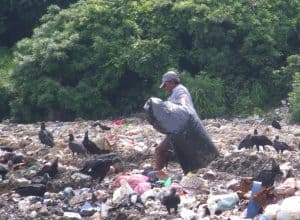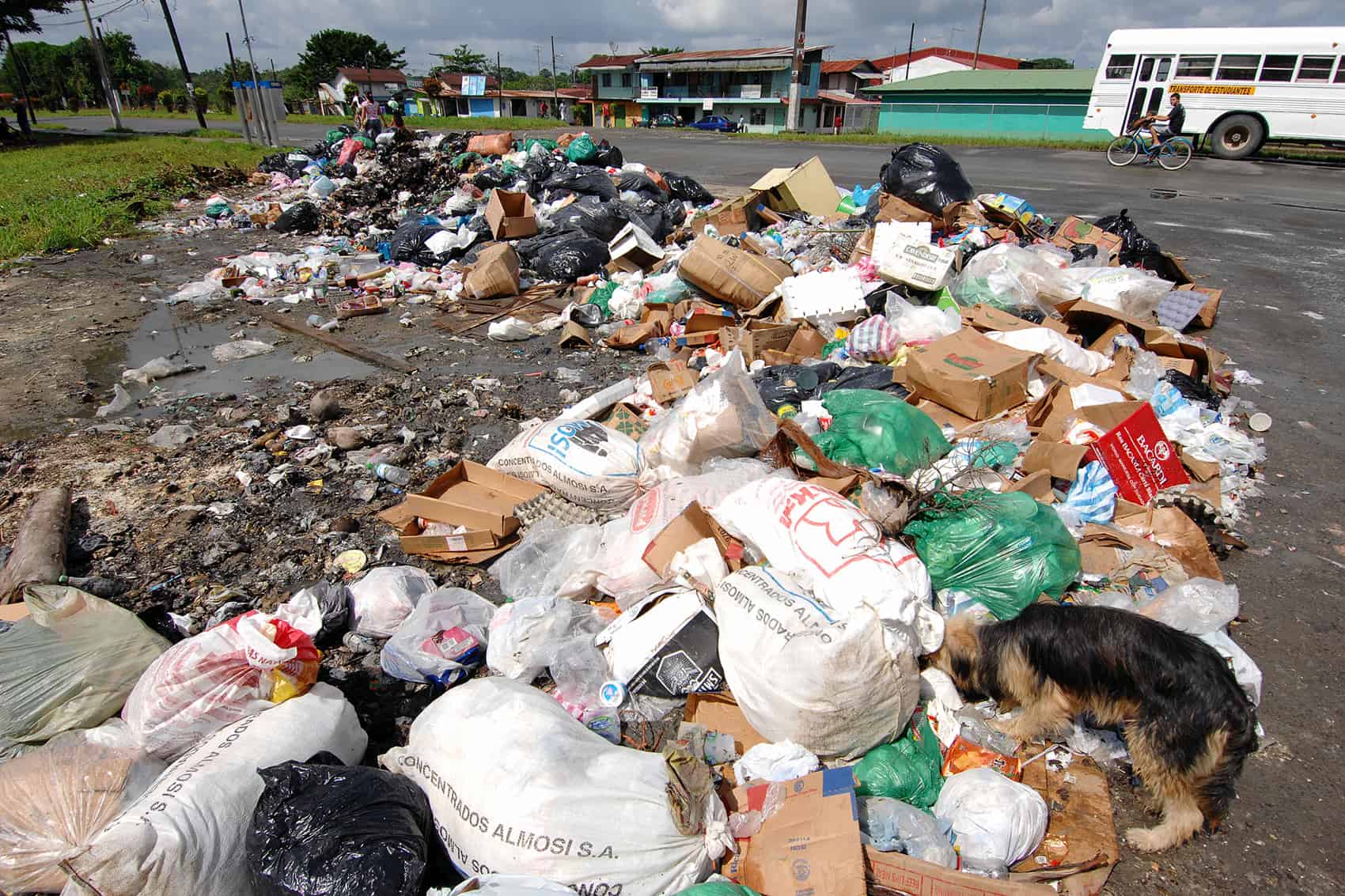In a press conference Monday afternoon, National Liberation Party lawmaker Juan Rafael Marín threatened to trash the front lawn of the Casa Presidencial – literally. Marín, along with five other lawmakers, called the press conference to draw attention to the closure of 22 municipal solid waste dump sites across the country. They say the closures have left municipal governments with few options to manage their citizens’ solid waste.
“If things don’t change soon, I think we should just take all of the trash and bring it to Casa Presidencial,” Marín said. “Show President [Luis Guillermo] Solís what we are dealing with.”
Costa Rica’s Environmental Tribunal ordered municipalities to stop using the sites after concluding the mostly open-air garbage pits failed to comply with the country’s environmental standards for solid waste disposal. The majority of closures are taking place in the provinces of Alajuela and Guanacaste. Affected municipalities now must choose between the expensive option of transporting trash to private facilities, where they pay by the load, or leaving it uncollected in the streets.
“It’s a vicious cycle, we know that,” José Lino Chaves, president of the Environmental Tribunal, told The Tico Times. “This is what needs to be done according to the law. But at the same time a lot of this garbage is going to end up in the streets. There needs to be a solution worked out between the municipalities and the national government to manage this problem.”

According to Chaves, most of the sites already have been closed, but others are slated for “technical closures” coordinated with the Health Ministry. In these cases, the ministry works with municipalities to clean up the area to use the land for other purposes in the future. None are eligible to reopen for solid waste disposal.
Costa Rica’s solid waste management problem is not new, but it isn’t improving either. According to the University of Costa Rica, 25 percent of the country’s trash was dumped into rivers in 2011, and a 2013 study from the Costa Rican Tourism Board found that only half of the municipalities in the eastern province of Limón had solid waste management plans on the books.
“It’s not a secret that solid waste is a problem for all of the country’s 82 municipalities,” said Johnny Leiva, a lawmaker for the Social Christian Unity Party and chair of the Legislative Assembly’s Guanacaste Commission. “But the government is leaving us without any options.”
Leiva and the rest of the Guanacaste Commission arrived at the press conference armed with a list of demands for the Solís administration. They asked the president, who took office in May, to delay the closures of all 22 sites, to declare a national sanitary emergency and to grant leniency to municipalities in Guanacaste struggling with solid waste problems. Commission members also asked Solís to lift a moratorium on burning trash for energy, which his government signed in June.
The moratorium – adopted by decree – was signed by Vice President Helio Fallas, Health Minister María Elena López and Environment Minister Edgar Gutiérrez as a reaction to the growing interest in waste-to-energy incinerators in the energy sector.
“We still don’t have confidence in the technology used to burn solid waste,” López wrote in the decree. “With the consequences it could have on the environment, it is best to be sure about this first.”
Guanacaste lawmakers disagree, arguing that waste-to-energy incinerators are the country’s best option for its solid waste problem, and new technologies for high-temperature incinerators help reduce the risks – an argument the Union of Concerned Scientists and many environmentalists say is garbage.






